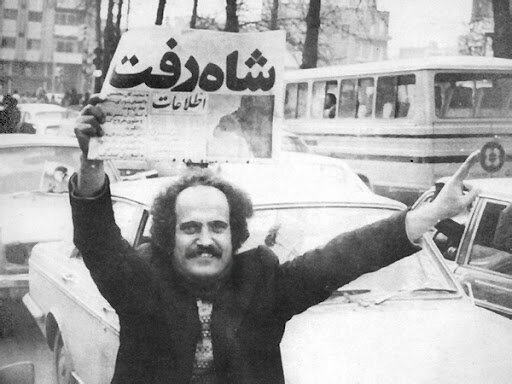
Nigeria’s establishment of a full fledged Ministry of Marine and Blue Economy in 2023 demonstrated President Bola Ahmed Tinubu’s commitment to diversifying Nigeria’s economy and capitalizing on the global surge in deep sea exploration. The Blue Economy is a term that refers to the sustainable use of the ocean resources to create jobs, improve lives and promote economic growth. This also includes the preservation of ocean ecosystems and health.
• Oyetola and Diri With a coastline stretching over 850 kilometers, one of the largest in the West and Central African sub-region, Nigeria ‘s coastline cuts across Akwa Ibom, Delta, Ondo, Bayelsa, Cross River, Ondo, Ogun and Lagos states. With the prospect of creating over 31 million jobs globally, a projected annual economy of between $3 trillion and $6 trillion, it appears Nigeria is taking on a sluggish leap on the starting line. Out of the nine littoral states, only Bayelsa has created a Ministry of Marine and Blue Economy and has come up with a policy framework on how it intends to harness the huge potentials of a sector regarded as the 7th largest economic sector globally .

At a well attended validation ceremony last October in Yenagoa, the state capital, Governor Douye Diri had told his audience that the wealth of the state lies in the belly of the Atlantic Ocean. He expressed the determination of his administration to partner and collaborate with the Federal Ministry of Marine and Blue Economy to ensure that the state takes full advantage of the opportunities in the sector. On his part, the Minister of Marine and Blue Economy, Chief Adegboyega Oyetola, has continued to mobilize support from stakeholders in the sector to join hands with his Ministry so that Nigeria could also have a huge slice of the potentials that lie ahead.
Like Bayelsa, Oyetola has also gone ahead to put together a policy and legal framework which stakeholders described as very ambitious. But if Nigeria must reap bountifully from the rich potentials of this multi-dollar sector, it has a herculean task of mobilizing the littoral states of Akwa Ibom, Bayelsa, Delta, Cross River, Ondo, Ogun , Lagos and Rivers states to come on board. For instance, Lagos and Rivers states enjoy a considerable amount of maritime business and ancillary services.
Lagos State is blessed with the Apapa, Nigeria’s premier port, as well as the Tin Can Island and Lekki Deep Seaport, numerous jetties and currently constructing another Deep Sea Port in Badagry. In Rivers, we have the Onne Port Complex and the Rivers Port Harcourt. Onne Port complex is currently the hub of oil and gas activities and home to most of the oil service companies.
States like Ogun, Akwa Ibom and Cross River are equally embarking on the construction of deep sea ports. Bayelsa’s Agge Deep Seaport project has been on the drawing board for decades and does not seem to be making any headway. In Delta, the Warri, Burutu and Forcados ports require immediate infrastructure upgrade to enable them reach optimum potential.
However, one thing that is urgently needed is for the respective state governments in the other eight littoral states to establish their respective Ministries of Marine and Blue Economy. Presently, we have the Minisries of Transportation overseeing the functions of the Marine and Blue Economy sector. Sadly, most of the helmsmen in these states, other than Governor Babajide Sanwo-Olu of Lagos State, have failed to appreciate the huge potentials of this sector, if they must improve their internally generated revenue.
Governor Sheriff Oborevwori of Delta State shocked Nigerians when last year he announced the creation of a Ministry of Riverine Infrastructure. Only God knows what he intends to achieve with this new Ministry. Deltans are hoping that he will do the needful by redesignating the Ministry in line with what we have at the Federal level.
Oborevwori is lucky to have the likes of Prince Temisan Omatseye, a former Director General of the Nigerian Maritime Administration and Safety Agency (NIMASA) and one of Nigeria’s brightest in the sector, who is from Delta State, to tutor him on steps to take. Rather than fold his arms and wait for the other littoral states to fall in line, Marine and Blue Economy Minister, Chief Adegboyega Oyetola, has a role to play by galvanizing them to support President Bola Ahmed Tinubu’s initiative, and do the needful by creating a separate Ministry of Marine and Blue Economy in their domains. There is an urgent need for the remaining eight littoral states, like Bayelsa has done, to join hands with the Minister of Marine and Blue Economy.
While admitting that the Federal and State governments belong to different tiers of government, it is imperative that collaborative efforts by these tiers of government is needed if Nigeria must have an unfettered access to this multi-trillion dollar global economy. The time for Lagos, Akwa Ibom, Delta, Ondo, Ogun, Cross River, Delta and Rivers states to create an autonomous Ministry of Marine and Blue Economy is now..















